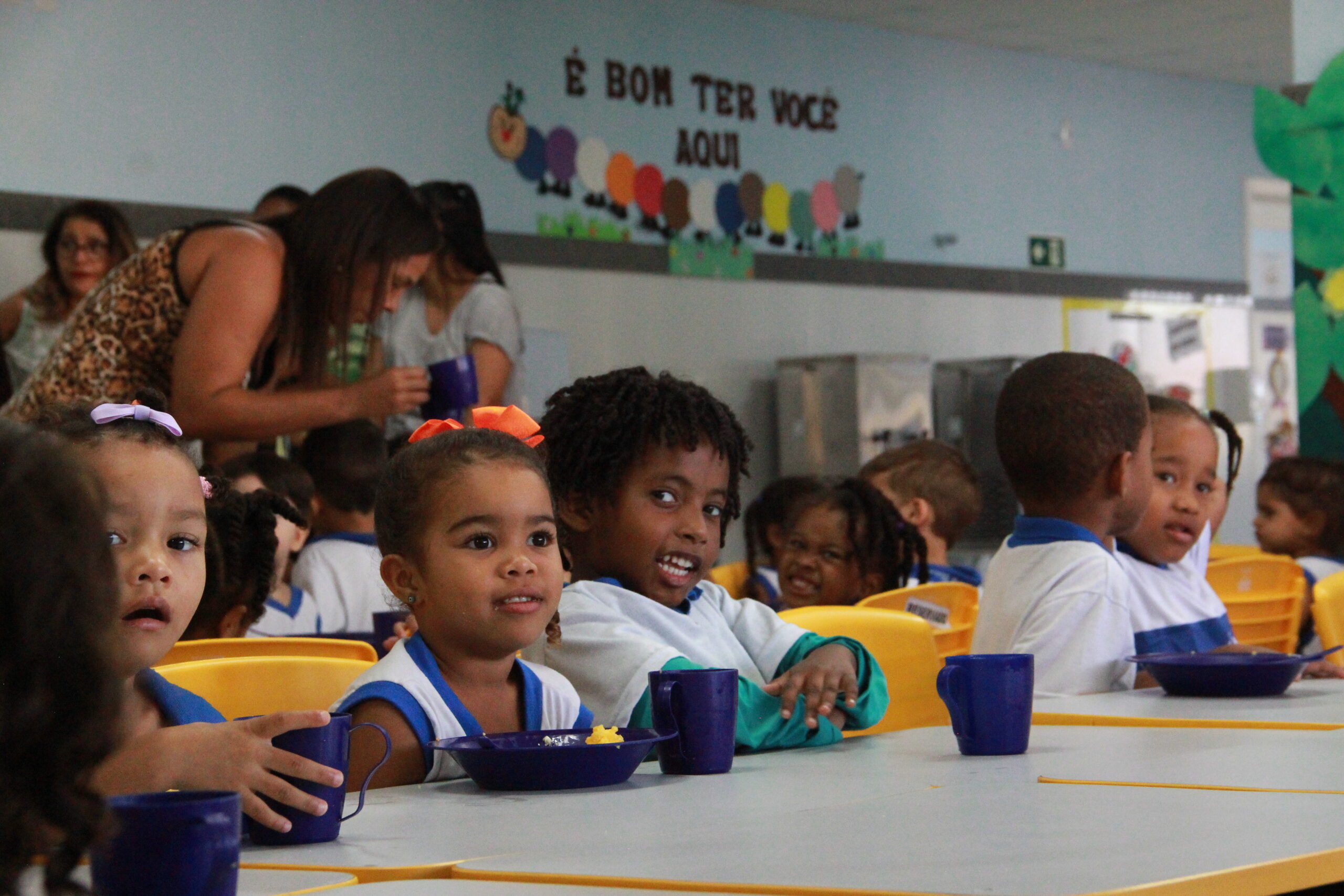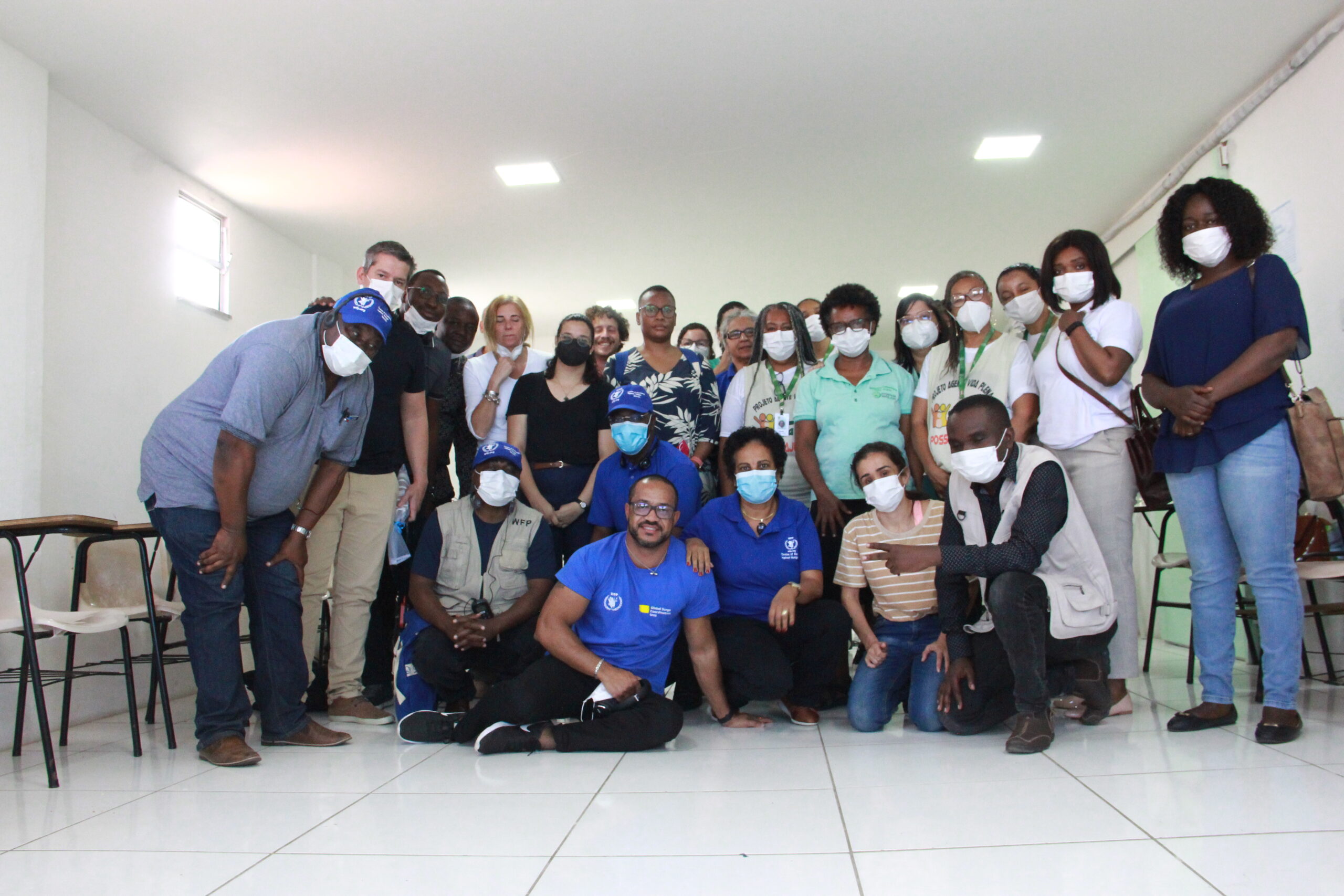
As part of the Beyond Cotton Project activities, delegations from Benin, Mozambique and Tanzania finalized their mission to Brazil with a visit to a school and a health centre at the Pau da Lima community in the outskirts of Salvador, Bahia. The public school participates in the National School Feeding Programme and the primary care centre supports vulnerable families living with food insecurity. This visit was part of the efforts to share good practices for the distribution of food produced in strip multi-cropping models compatible with cotton to safe markets, including school feeding programmes.
Over the years, Brazil has developed a series of social programmes aimed at tackling issues that directly affect the most deprived populations while simultaneously strengthening public policies and accelerating socioeconomic development. Nowadays, smallholder farmers within this population can be responsible for around 70% of food production that is put on the table of Brazilians. In 2009, the National School Feeding Programme (PNAE) was redrafted and since then 30% of federal funds from PNAE must be used to procure food from those farmers.
At the Professora Alita Ribeiro de Araújo Soares elementary school, the delegations were able to talk to local managers, who reported that the local procurement policy has had a positive effect on the institution’s income distribution to local farmers, strengthening relationships within the community, and providing fresh and nutritious food to the students. Local procurement processes, however, still report some difficulties in procuring bulk amounts from smallholder farmers, making the offer of local food items unstable. On average, 35% of the food purchased by the school comes from smallholder farmers.

The visit to the school and health centre, as well as a visit to a local cooperative on August 15, were part of a broader agenda which also included the participation at the Brazilian Cotton Congress, from August 16 to 18, in Salvador, Bahia. Brazil is one of the world’s leading cotton producers and this is the main event of the Brazilian cotton sector where its main actors meet to discuss how to strengthen the cotton production chain. The main theme chosen for this edition was “Brazilian Cotton: Challenges and Perspectives in the New World Scenario”. The event was a unique opportunity for all Beyond Cotton project partner countries to meet, learn, exchange experiences and mainly to discuss how to better develop the project in their countries.
The Beyond Cotton Project aims to support smallholder cotton farmers and public institutions in African countries in linking cotton by-products and intercropped crops to safe markets, including school feeding programmes. The objective is to increase production, local income and food and nutritional security for smallholder farmers.




